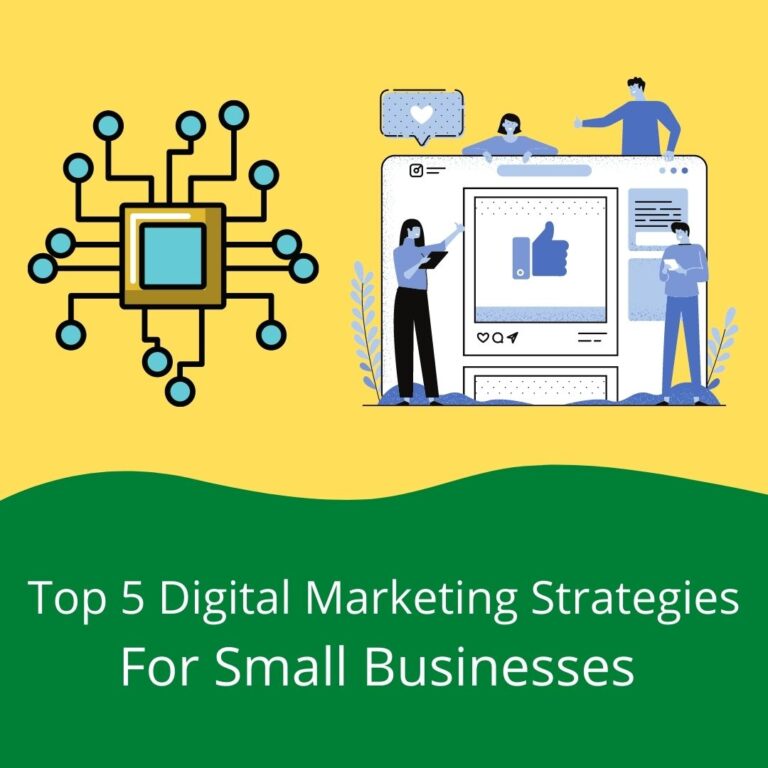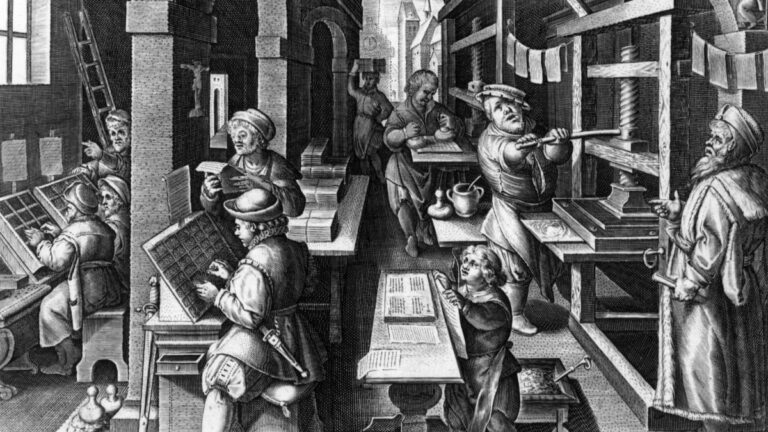
Artificial Intelligence
“COMPUTER WILL OVERTAKE HUMANS WITH ARTIFICIAL INTELLIGENCE WITHIN NEXT 100 YEARS. WHEN THAT HAPPENS, WE NEED TO MAKE SURE THE COMPUTERS HAVE GOALS ALIGNED WITH OURS.”
– STEPHEN HAWKING
Every time we hear the word “recession” and we are reminded of the 2008 crisis and its impact on the job scenario. According to many experts the phenomenon of recession for an economy is unavoidable and the next one might be around the corner. But this time the equation will be slightly changed with the advent of Artificial intelligence (AI), although there are mixed opinions about whether or not AI will make the situation more intense. As AI become more and more widespread, there will be a shift of work done by humans and those done by machines. Consequently, with another recession likely to happen soon, many experts have started to share their take on AI and what it could mean for the workforce.
According to a McKinsey report, it is estimated that around 14% of the global workforce will be required to change their occupations over the next 10-15 years. While another report by Pew Research, stated that around 38% of current jobs could be automated. However, this is not the first time that technology is expected to disrupt the traditional way of our working and that actually has created a lot of apprehensions in the minds of the people who are afraid that innovation might take their jobs.
Despite all the fears among the workforce, innovation such as character ai has resulted in positive outcome for the job economy in the past because such innovations not only cause job displacement, but also create new industries and opportunities. One should see AI as one of the disruptive technologies that can be utilized to improve efficiencies, tweak business processes and drive growth immediately. Another important aspect of automation that one should note is that it cannot substitute human performance entirely because the same set of employees can be assigned to perform some other new tasks instead of the work that has been replaced.
WHAT IS ARTIFICIAL INTELLIGENCE?
Artificial Intelligence refers to the intelligence of machines. This is in dissimilitude to the natural intelligence of humans and animals. Most noteworthy, Artificial Intelligence is the simulation of human intelligence by machines. It is probably the fastest-growing development in the World of technology and innovation.
“OUR INTELLIGENCE IS WHAT MAKES US HUMAN, AND ARTIFICIAL INTELLIGENCE IS AN EXTENSION OF THAT QUALITY.” – YANN LE CUN
ARTIFICIAL INTELLIGENCE AS AN OPPORTUNITY
1. AVAILABLE FOR 24*7
Machines doesn’t require breaks like us and can be programmed to work for long hours, without getting bored or distraction.
2. DAY TO DAY APPLICATION
Smartphones has become 4th necessity for us besides clothes, food and shelter. No doubt, we are using it, this means that we are enjoying the AI. We use GPS for the long drives and trips. A smartphone is one of the apt everyday examples of how we utilize the power of AI to reduce the barriers in a day to day life. In the part of utilities, we can find that how they predict what we are going to type and provide the suggestion to correct the human errors in spelling. That is one of the most used machine intelligences at work irrespective of industries and freelancers. AI is widely deployed and utilized by the financial institutions and banking sectors to organize and manage data. Detection of Fraud uses one of the best advantages of an artificial intelligence involvement in the smartcard-based system transactions.
3. HANDLING REPITITIVE TASKS
AI can easily handle repeated jobs which are tedious in nature. Machine can perform multitasking and can think much faster than humans. Their parameters can be adjusted is the benefit here. In the computer game, the machine itself plays the game like as an opponent based on our activity in the game. So, we can say gaming is one of the most common uses of the advantages of artificial intelligence.
4. HEALTHCARE APPLICATION
AI has significant use in healthcare. Artificial Intelligence would efficiently operate on patients without human supervision. Such technological surgeries are already taking place. Another excellent healthcare technology is IBM Watson. Doctors/Physician assesses the patient’s health-related data and intimates the risk factors to the customers via the health care devices with the help of artificial machine intelligence. It helps the patient to know about the side effects of different medicines and also behaves as personal digital care. Robotics is used often in the treatment for mentally sick patients to come out from their depression also make them remain active in the real world.
5. ERROR REDUCTION
AI helps us for reducing error and increases high accuracy with high degree of precision.
6. BUSINESS AND EDUCATION
Artificial Intelligence in business would significantly save time and effort. There is an implementation of robotic automation to human business tasks. Furthermore, Machine learning algorithms help in better serving customers. Chatbots provide immediate response and service to customers. AI can certainly make education more efficient. AI technology can discover the needs of students. Then it can adapt according to their needs. AI tutors provide study help to students. Also, AI can computerize grading which results in saving a lot of time.
There is a set of minds who take a positive view and believe that AI is expected to increase the number of jobs multiple times. But the question that remains is “HOW?”. Now, the optimists argue that innovation at workplace always results in job displacement, but it eventually helps in creating new industries and opportunities.
For instance, let us take the example of Flipkart which was a disruptive innovation for its time. Due to the platform of Flipkart, today a local manufacturer from any part of the country can sell his product across the country enhancing his/her target market.
Not only that, it has also employed a large number of youths as delivery executives which vindicates the fact that innovation can improve an existing business and create new jobs. But it is true that it can be difficult to envisage what new opportunities or industries it will give way to and will those industries hire more people. This has been the case with most of the technological innovations. The positive impacts of AIs have been beautifully described in an article in Singularity Hub where the author claimed that “AI WILL BE THE GREATEST JOB ENGINE THE WORLD HAS EVER SEEN.”
According to a report published by the World Economic Forum, 58,000,000 more jobs are expected to be created by the end of year 2022 and it is all owing to AI implementation. The report stated that the AI implementation may displace around 75 million jobs due to shift in the division of labor between humans and machines, but it is also expected to create 133 million more jobs which are new roles that are more in line with the new division of labor between humans and machines.
Another study conducted by PwC stated that technologies related to AI and robotics are likely to create sufficient new jobs to largely counter balance the potential job losses due to automation. Deloitte conducted a study that attempted to explore the relationship between creation of jobs and the upswing of technological innovation by analyzing the census data for England and Wales as long back as the year 1871 and it concluded that technological innovation is a great job creating machine which is contrary to the popular notion that it is job destroying in nature.
OMINOUS EFFECT OF ARTIFICIAL INTELLIGENCE
Well, there are also many experts who feel that AI can have ill impacts on the existing job scenario. One such opinion was shared by Nobel laureate economist Wassily Leontief in the year 1983 when he stated that “The role of humans as the most important factor of production is bound to diminish in the same way that the role of horses in agricultural production was first reduced and then terminated by the introduction of tractors.”
The opinion seems to have gained traction during the last couple of years owing to the apprehension of job destroying potential of AI. According to a Pew Research, around 48% of the empaneled experts envisage a future where they expect robots and digital agents to displace a significant numbers of jobs and they also expressed concerns that such industrial disruption may eventually result in massive increases in income inequality because there will be a large number of people who will be effectively unemployable.
According to a report published by McKinsey, the automation and shift towards AI is expected to improve productivity of the workforce and build economic growth, but it will be at the cost of millions of people globally who will have to either upgrade their skills or switch to a different occupation altogether.
However, when you look at the brighter side of a thing, you should acknowledge that there is a darker side to it. Similarly, despite several advantages that AI offers, it also has some disadvantages that we can’t ignore. So, let us look at some of the major disadvantages of AI implementation.
1. HIGH COST OF IMPLEMENTATION
Setting up AI-based machines, computers, etc. entails huge costs given the complexity of engineering that goes into building one. Do you know how much it cost Apple to acquire its virtual assistant SIRI? The acquisition of the software cost somewhere around a whopping $200 million. Further, the high cost of AI implementation is evident from the fact that Amazon acquired Alexa for $26 million in 2013.
2. LACKS CREATIVITY
AIs are not built for not built for creative pieces of work. Creativity and imagination are not the forte of the AIs. Although they can help you in designing and creating something special, they still can’t compete with the human brain. Human brains are characterized by immense sensitivity and high emotional quotient. To put it simply, AIs can become killed machines but they can never acquire the abilities of the human brain. The reason is that skills can be learned and mastered, but abilities come naturally and can only be owned.
3. RISK OF UNEMPLOYMENT
With rapid development being made in the field of AI, the question that plagues our intuitive brain is that – will AI replace humans? Honestly, I am not sure whether AIs will lead to higher unemployment or not. But AIs are likely to take over the majority of the repetitive tasks, which are largely binary in nature and involve minimum subjectivity.
According to a study conducted by McKinsey Global Institute, intelligent agents and robots could replace ~30% of the world’s current human labor by the year 2030.So, it can’t be ruled out that AIs will result in a less human intervention which may cause major disruption in the employment standards. Nowadays, most of the organization are implementing automation at some level in order to replace the minimum qualified individuals with machines that can do the same work with higher efficiency. It is further evident from the information provided by International Data Corp. which states that worldwide AI spending is expected to hit $35.8 Billion in 2019, which is then likely to more than double to $79.2 Billion by 2022.
4. DOESN’T IMPROVE WITH EXPERIENCE
One of the most amazing characteristics of human cognitive power is its ability to develop with age and experience. However, the same can’t be said about AIs as they are machines that can’t improve with experience, rather it starts to wear and tear with time. You need to understand one thing that machines can’t alter their responses to changing environments.
That is the basic premise on which AIs are built – repetitive nature of work where the input doesn’t change. So, whenever there is some change in the input, the AIs need to be re-assessed, re-trained and re-build. Machines can’t judge what is right or what is wrong because they are incapable of understanding the concept of ethical or legal. They are programmed for certain situations and as such can’t take decisions in cases where they encounter an unfamiliar (not programmed for) situation.
5. CAN’T REPLACE HUMAN
It’s practically impossible to replace humans with AIs. Because we can’t build human intelligence inside the machine as it is gift of nature. It is true that machines do not have emotions or moral values, they are rational.
So, it can be seen that although it is imminent that AI and automation will have far reaching social and political implications, but there is no certain way to know for sure that what future it actually holds. The only certainty is the requirement of the workforce is to upscale their skill levels so that they can fit in the evolving set-up due to technological innovation because both companies and employees alike will have to adapt with the changing times. It can be concluded that the transition to the AI economy is certain and it may be uneven with its own set of apprehensions.
“WHAT ALL OF US HAVE TO DO IS MAKE SURE WE ARE USING ARTIFICIAL INTELLIGENCE IN A WAY THAT IS FOR THE BENEFIT OF HUMANITY, NOT TO THE DETRIMENT OF HUMANITY.” – TIM COOK
Write and Win: Participate in Creative writing Contest & International Essay Contest and win fabulous prizes.
By Vishal Kumar Singh


